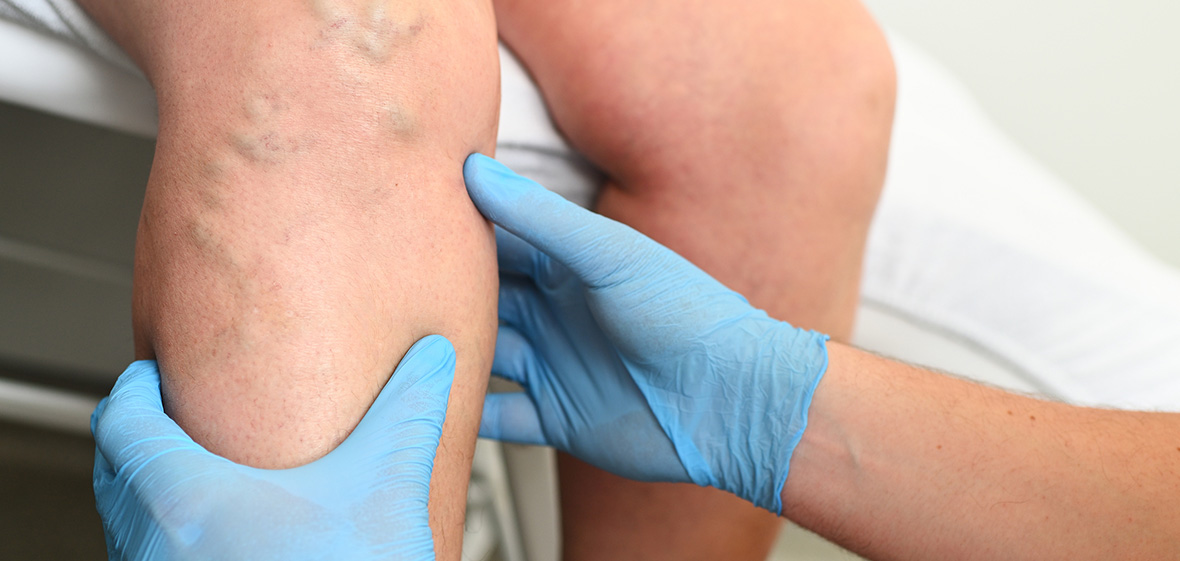
Lymphedema is the chronic swelling of a limb due to an accumulation of fluids (edema) as a result of absent, obstructed, or dysfunctional lymph nodes, causing damage to the lymphatic system. Lymphedema can occur in the arms or legs, in the neck, hands, chest, abdomen, back, genitals and feet.
Most commonly, lymphedema is caused by cancer treatments, such as the surgical removal of lymph nodes or radiation, from trauma, or other health conditions such as infections, obesity, paralysis or chronic venous insufficiency.
The lymphatic system is vital in the function of our immune system and circulation. It is essential in maintaining fluid balance, fighting disease and for nutrient absorption.
- Lymph vessels carry fluid and protein in and out of tissues, and filter and collect waste products
- Lymph nodes located in the arm, neck and groin filter the lymph fluid and fight infection
When the lymphatic system is impaired or damaged, fluid begins to accumulate under the skin, resulting in lymphedema. If left untreated, lymphedema can continue to worsen and result in multiple medical complications.
How Do I Know if I Have Lymphedema?
The first noticeable sign of lymphedema is often swelling of the limb or area that develops into “pitting edema.” Pitting edema occurs when you apply pressure to the swollen area and an indentation remains in the skin.
Other signs and symptoms include pain or achiness in the area, feelings of heaviness or tightness in the area, increased warmth of the affected area and noticeable changes in skin color or texture.
How is Lymphedema Treated?
Lymphedema treatments are generally provided by a specially trained physical therapist. They can offer a variety of treatment options and education, including manual lymphatic drainage, compression bandaging and the use of compression garments.
Therapeutic exercise is another component of treatment that is very beneficial. Muscular contraction can serve as a “pump” to help assist the lymphatic system in moving fluid in the body. It is important to maintain range of motion and strength of the affected limb in order to maximize the use of the affected extremity. Exercise needs to be progressed slowly. A trained therapist can determine what exercises are appropriate for your specific needs.
Where Can I Get Care for Lymphedema?
Early intervention is essential for the best outcomes when treating lymphedema. This condition can occur within a few days or months after surgery or injury, but it can also occur years later. It is important to discuss any swelling or concerns with your medical provider as soon as it is noticed. Your regular primary care provider or specialist physician can refer you for lymphedema care with a trained physical therapist, if warranted. Because sudden redness, warmth or swelling with or without a fever could also be a sign of infection, it is important to contact your medical provider immediately if you experience these symptoms.
Lymphedema care is available at:
- UofL Health – Frazier Rehab Institute
- UofL Health – Frazier Rehab Institute – Stonestreet
- UofL Health – Frazier Rehab Institute – Mary & Elizabeth Hospital
- UofL Health – Frazier Rehab Institute – Owsley Brown Frazier Sports Medicine
- UofL Health – Frazier Rehab Institute – Medical Center Northeast
- UofL Health – Frazier Rehab Institute – Chestnut Street
- UofL Health – Frazier Rehab Institute – Shelbyville Hospital
For more information or a list of locations offering lymphedema care, call 502-681-1682 or visit UofLHealth.org.









